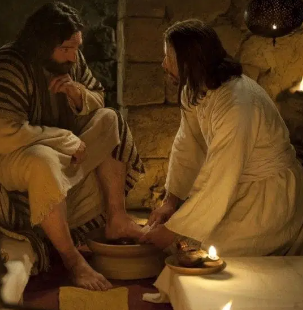Church volunteers that serve with passion and purpose are intentionally cultivated by pastors and staff who know how to discover, manage, and deploy spiritual gifts and ministry interests effectively. The problem in most churches is not that they don't believe in the value of this information, but in the chaotic way they have managed (siloed) it.
When churches teach on, then assess spiritual gifts and ministry interests, that information is stored in a file cabinet, a spreadsheet, or the assessing software. Even if it is somehow stored in the main church database, volunteer leaders either don't have access to it, or they don't know what to do with it.
We spend a lot of time helping churches solve data problems like this one. There is so much potential for discipleship and team-building that is hidden in this data. We want to help you get it out and make it actionable.
Here are five steps to help you enter and actually use data for team-building.
1. Help members learn about and discover their spiritual gifts
The first step is helping people understand the connection between God's grace to them, and the working out of that grace in the church through their own spiritual gifting. While teaching, reading, prayer, and reflection are foundational to this process; a reliable spiritual gifts assessment can be a helpful catalyst.
We highly recommend utilizing a well-regarded online assessment, such as the ones available through ChurchGrowth.org, Freeshapetest.com, and ItoWe.org. These tools provide a structured way for individuals to explore and identify their primary spiritual gifts. Click here to take the Church Growth Team Ministry Assessment as an example.
2. Make it easy for members to enter their gifts into Churchteams
Once individuals complete an assessment, the real potential comes from integrating that information into your Church Management Software (ChMS). In Churchteams, we recommend emailing the assessment link using our Communication report "Request for Updated Info."
This report creates a unique "Click here" link that takes people right to the page in Churchteams to input their assessment results. No username, no login, just one click and input the information!
Here's an example of one I customized to illustrate what people will receive with links that: (1) take them to the assessment, and (2) allow them to enter their results into Churchteams.
Note: Before you send this out, be sure to: (1) customize your People Attributes (People > Settings > People Attributes) to match the assessment results, and (2) test it by sending an email to yourself first.
3. Use reports to find the right people
Now that data is centralized, staff can use it to find people with gifts and/or interests that fit their ministry needs. Need someone with the gift of hospitality for your welcome team? Or a person with the gift of administration for your finance committee? Use Reports to create a list, or, better yet, add these people into an "Interested in Serving" group. Be sure to Save the report so that you don't have to re-create it each time you need to use it.
Once you have created your "Interested in Serving" group(s), another best practice is to link Ministry Interest responses to those groups. This will automate the process of placing people interested in a ministry into the correct group. Anyone with the Group Role of Leader in the "Interested in Serving" group is automatically notified.
4. Use groups to recruit and place people in teams
The role of the "Interested in Serving" group is to gather potential volunteers into one place. Be sure Notes is one column in the layout for this group so that you can use them to summarize conversations or other interactions, and assign / schedule follow up tasks. By doing this you can manage all your recruiting activities in one place.
When you find out a person is ready to join a volunteer team transfer them to that group. If they decline the opportunity to serve, just remove them from the "Interested in Serving" group.
In yourvolunteer team groups, customize the group layout to include spiritual gifts. This will give the team leader a more complete picture of how this team fits together. Non-staff will automatically see the groups they lead in the App making the spiritual gifts of team members more available to them.
The person with administration gifts would be perfect for planning or organizing something, while the encourager or teacher might prefer to teach or facilitate. This is where the data becomes valuable for team-building.
5. Use notes to track conversations and schedule care
Once someone is placed on a team, use the volunteer scheduling tool to invite and remind them to serve. It will also keep record of their serving attendance. This is important to give you an idea of how much they serve and how consistent they are. Helpful information to have later on.
For that more personal touch, use the Notes feature once again to remind you as the team leader to touch base with them to see how they are doing. This is especially important when they first begin to serve.
You might considering setting a task to follow up with them a month after they are placed on the team to see how serving is going for them. Then again every other month after that.
Look for signs in your conversations that people love what they're doing or if perhaps there might be another position or ministry that would better fit them. Track this with Notes and be sure to share insights with other ministry leaders. This is how staff leadership teams help each other.
When individuals serve in areas that align with their spiritual gifts and ministry interests, the benefits ripple throughout the entire church:
-
Increased Engagement: People are more likely to stay engaged and committed when they feel fulfilled and effective in their roles.
-
Reduced Burnout: Serving in alignment with gifts reduces the feeling of burden and increases joy.
-
Greater Impact: Teams operating within their collective strengths are more productive and impactful in achieving ministry goals.
-
Stronger Community: Shared purpose and effective collaboration build deeper relationships within teams.
By intentionally tracking and leveraging spiritual gifts within your ChMS, you're not just managing data; you're cultivating a culture of empowered service that transforms individuals and strengthens the entire body of Christ. It's a strategic approach to team building that honors God's design for His people and His church.
For more insights, check out the videos in our Volunteers showcase. Or, email support@churchteams.com to set up a time to talk personally.














